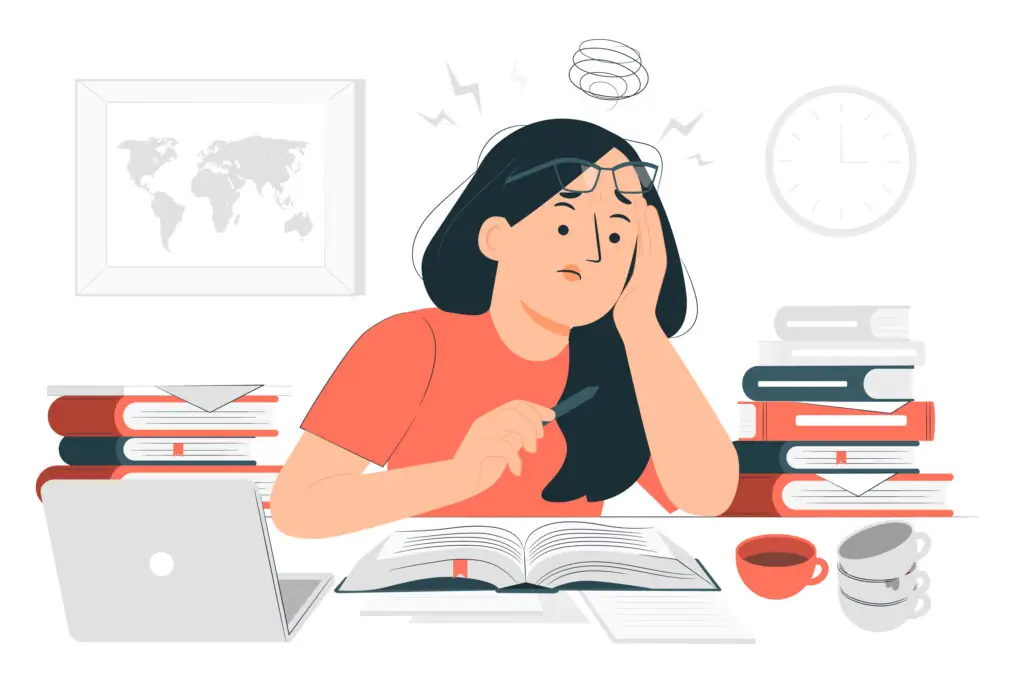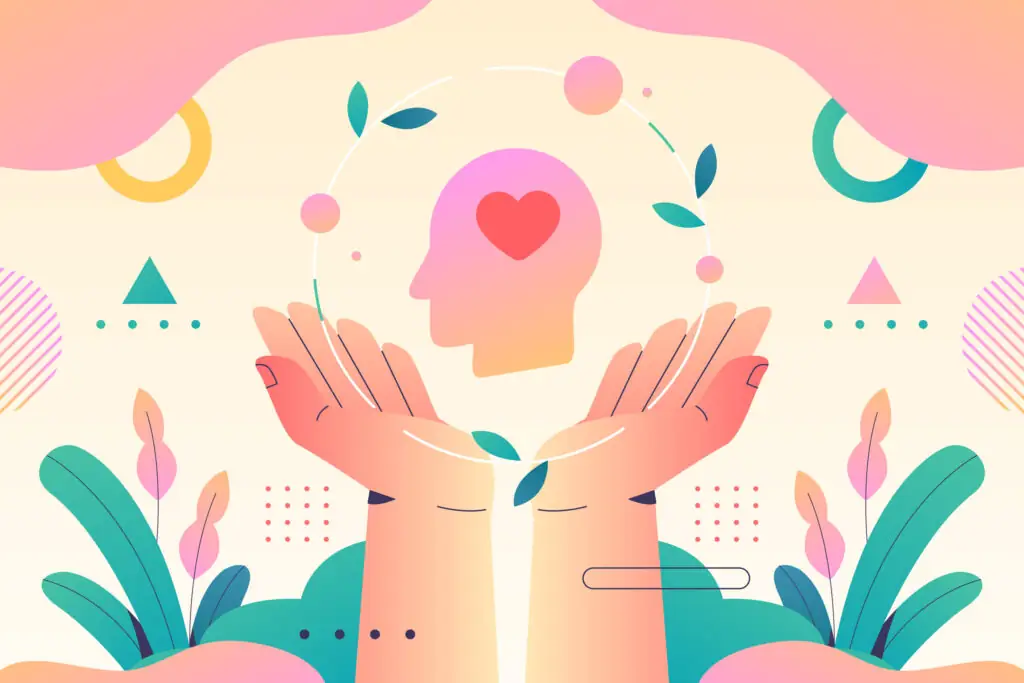Tiger parenting, known for its strict approach to raising highly successful children, has inspired a student Reddit user to apply a similar discipline to themselves, creating what they call “Tiger Studenting.” This method has led to remarkable academic achievements, sparking interest and debate on the practice.

✅ AI Essay Writer ✅ AI Detector ✅ Plagchecker ✅ Paraphraser
✅ Summarizer ✅ Citation Generator
Key Takeaways
- A Reddit user introduced “Tiger Studenting” as a self-imposed method to achieve academic excellence. This extreme approach to studying is characterized by marathon sessions and minimal leisure time.
- The pursuit of perfection through intense study habits has been shown to lead to significant health issues, including stress, burnout, and physical ailments like carpal tunnel syndrome.
- Embracing self-compassion, allowing for mistakes, and establishing balanced habits are highlighted as crucial for sustainable success, both academically and personally.
What do students not only come up with to handle their academic life? Grinding through studies, pulling all-nighters, using spaced practices, or following the 40-20-40 model. Everybody chooses the technique that will make the learning process more efficient and maybe even easier to go through. We’ve studied the question a little deeper and found a few tactics that seemingly gained the most influence among different kinds of students mostly because of their efficiency and clear structure.
1. The SQ3R Method
The SQ3R Method is a structured approach designed to enhance reading comprehension and retention of material from textbooks. This technique involves five key steps:
- Survey
- Question
- Read
- Recite
- and Review.
Initially, students skim through the chapter, noting headings and significant features like charts or images. They then formulate questions based on the chapter’s content, which guides the reading process as they seek answers. After reading, summarizing the content in their own words helps solidify understanding, followed by a comprehensive review of the material to ensure a thorough grasp of the concepts. This method is particularly effective for preparing for exams, promoting active engagement with the material rather than passive reading.
2. Retrieval Practice
Retrieval Practice is a technique that focuses on enhancing memory by practicing the recall of information, proving to be more effective than passive review of notes or textbooks. Many of you may be familiar with this technique as it involves self-quizzing or using flashcards without peeking at the answers prematurely. By actively recalling information, students strengthen their memory and understanding, making this an excellent strategy for long-term retention. Implementing practice tests and creating personal questions can simulate exam conditions and reinforce learning, making retrieval practice a powerful tool for studying.
3. Spaced Practice
Spaced Practice advocates for distributing study sessions over time, rather than cramming all material in a short period. Even though this methodology may not be seen as efficient by most students it definitely is one of the techniques most well-adjusted to our brain capacity levels.
This method leverages the psychological spacing effect, where learning is more effective when sessions are spaced out, allowing time for the material to be partially forgotten and then relearned. This technique encourages revisiting material at increasing intervals, improving memory and concept integration over time. It’s a strategic approach that promotes deeper understanding and recall, ideal for long-term retention and mastery of subjects.
4. The Feynman Technique
The Feynman Technique is based on the principle of simplifying complex information through teaching. By explaining a concept in simple terms on paper, as if teaching someone else, students clarify their own understanding and identify any gaps in their knowledge. This method is based on the understanding of the importance of breaking down concepts into fundamental principles, making it a highly effective study technique for mastering complex subjects quickly and thoroughly.
5. Leitner System
The Leitner System is a flashcard-based study technique that utilizes spaced repetition for efficient learning. It’s commonly used by university students, especially those who need to study a couple of courses at once.
Cards are sorted into several boxes based on how well the material is known; correct answers move forward to boxes with longer intervals between reviews, while incorrect ones are either moved back or remain in the first box. This method ensures frequent review of challenging material and less frequent review of mastered content, optimizing study time and improving memory retention.
6. Mind Mapping
Mind Mapping is an overly popular visual organization strategy that helps learners outline information in a diagram, connecting ideas directly to a central concept and to each other. This technique is particularly beneficial for visual learners, as it visually represents relationships and hierarchies among concepts, facilitating better comprehension and recall of information. Mind mapping encourages creative thinking and can be an effective tool for brainstorming and integrating new knowledge.
7. Study Before Bed
Studying before bed can leverage the brain’s natural processes during sleep that consolidate memory and learning. Reviewing material right before sleeping can make it easier to recall information, as sleep helps to reinforce new knowledge. This technique suggests a strategic review of study materials a few hours before sleep rather than late-night cramming, aligning with research that shows the importance of sleep in learning and memory formation.
The Newest Invention – “Tiger Studenting”
However, it seems that all these techniques don’t cut it for some students. Thus, one of such learners, in an aspiration of driving their academic success, came up with a studying strategy of their own – “Tiger Studenting.” Drawing inspiration from the rigorous and highly debated tiger parenting approach, this self-imposed discipline strategy turns the tables, with students applying extreme pressure on themselves to achieve academic excellence.
By adopting a no-compromise attitude towards self-discipline, incorporating marathon study sessions, and limiting leisure time as a form of self-punishment for mistakes, Tiger Studenting pushes the boundaries of traditional study methods. This approach raises important questions about the balance between discipline and well-being, and whether self-imposed rigor can lead to sustainable academic success. It surely raised a lot of controversy among other Reddit users, so let’s see what they have to say about such an extreme approach to gaining success in academic life.
The Adrenaline of Achievement
For some students, the pressure of intense study sessions isn’t just a necessity but a source of adrenaline that fuels their success. They thrive under the weight of expectations, finding deep motivation and satisfaction in overcoming academic challenges.
“It is so fun to me. Like I absolutely love studying so hard because there’s some tension to it. But the best part is at the end of it when you succeed and can finally have that break.”
the OP shared, capturing the essence of what it means to find joy in the struggle. This enthusiasm for the challenge is often accompanied by a strong sense of achievement.

However, these experiences come with a word of caution. Despite the positive outcomes, the potential for negative consequences lurks closely behind. The same energy that propels some to greatness can, if unchecked, lead to burnout or worse. Recognizing when to draw boundaries is crucial. As one student wisely advised,
“Please don’t sacrifice your mental health for some form of status… It’s a net negative in life, though it feels like a net positive right now during school.”
The Costs of Extreme Self-Discipline
There was also this other side of the story brought up by many Reddit users, that is mental and physical health issues related to excessive studying. In the quest for academic excellence, the pressure to achieve perfection can lead to significant physical and mental health issues. Students, driven by an unwavering dedication to their studies, often find themselves grappling with ailments such as carpal tunnel syndrome—a direct consequence of endless hours spent typing and studying without adequate rest.
“I came from a similar background and was a tiger student. I can credit my fear-based study for my 4.0 and admission into an excellent grad program. In doing all of this, I neglected myself as a human. I got severe bilateral carpal tunnel by 25 and had to take a medical leave to heal from overworking. I never learned to respect myself or my accomplishments.”
shared one student, highlighting the severe impact of relentless self-discipline on physical health. The mental toll is equally concerning, with many facing stress, burnout, and a destructive pattern of abusive self-talk. The constant push for perfection can lead to a dangerous cycle where students are their own harshest critics, undermining their mental health and well-being.
“Hope this ‘perfection’ doesn’t catch up to you. Cuz it did with me. Now studying feels like torture because I’m terrified of making mistakes.”
This is a stark reminder of the long-term consequences of excessive academic pressure. Balancing ambition with health and self-compassion is crucial to avoid the high cost of perfection, ensuring students not only achieve their academic goals but also maintain their physical and mental well-being.
The Importance of Balance and Self-Compassion

As we can see the main point of this story is that it’s important to strike the right balance between diligence and self-care. After all, it won’t do anyone wrong to be more gentle with oneself, even if you did make a mistake or failed an exam. Many students have learned through tough experiences that allowing oneself to make mistakes and practicing self-compassion are essential for sustainable success.
“Your dedication is admirable, but don’t forget self-compassion too! Balance is key for long-term success.”
The journey to achieving a healthier balance often begins after facing the consequences of neglecting self-care.
“I tolerated tiger studenting and would do it 16 hours a day all through undergrad. High school was probably 14. I tolerated it until my body gave out, though my mind was addicted to the adrenaline of it. That’s what it is, an addiction to work and the related stress. Please read any literature about PTSD and the long-term effects of constant stress. You’re not doing your brain any favors….Now that my work is not purely study, I find I stand out awkwardly among peers who actually took care of their younger selves and know how to relax”
Experts suggest that establishing more balanced habits starts with setting realistic goals and integrating regular breaks and self-care activities into one’s routine
“Don’t let perfect get in the way of good enough,”
advises a professor, encapsulating the essence of finding harmony between striving for excellence and maintaining mental and physical health. This wisdom, echoed by those who have navigated the challenges of imbalance, serves as a guide for anyone seeking to cultivate a more compassionate and balanced approach to achieving their goals.
The Main Point
In this journey of chasing dreams and hitting the books hard, we’ve stumbled upon a powerful insight: true achievement isn’t just about getting top grades or being the best. It’s about finding a sweet spot where we push ourselves to do well but also take good care of our minds and body. This story teaches us to listen to ourselves, to know when to take a break, and to remember that it’s okay to be less than perfect. As we aim for the stars, let’s not forget to enjoy the ride and take care of ourselves along the way. After all, the real win is being happy and healthy while following our dreams.
Follow us on Reddit for more insights and updates.





Comments (0)
Welcome to A*Help comments!
We’re all about debate and discussion at A*Help.
We value the diverse opinions of users, so you may find points of view that you don’t agree with. And that’s cool. However, there are certain things we’re not OK with: attempts to manipulate our data in any way, for example, or the posting of discriminative, offensive, hateful, or disparaging material.